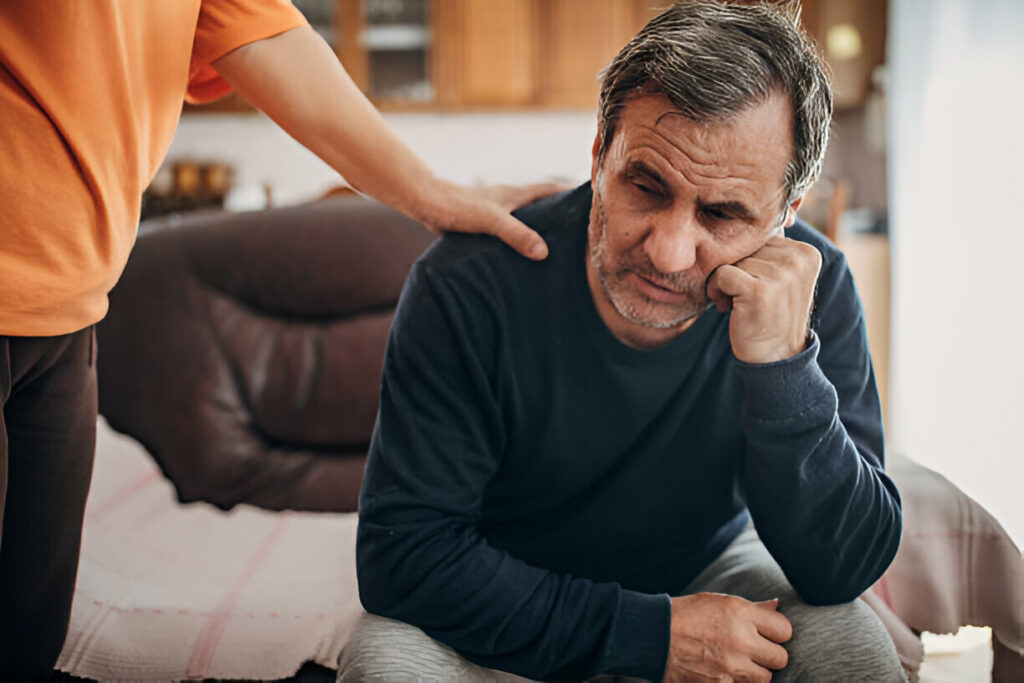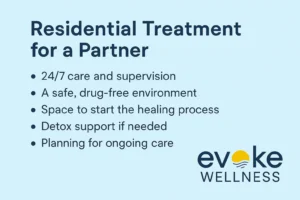When someone you love is using, your heart becomes a battlefield. One minute you’re hoping for change. The next, you’re making excuses. Sometimes, you’re just surviving.
It’s not that you don’t know they’re struggling. You do. It’s that you don’t know how to help without losing yourself in the process. That’s where residential treatment at Evoke Wellness Ohio comes in—not just as a solution, but as a place to breathe again.
You’re Not Weak for Staying—You’re Human
Let’s start with this: If you’re still in a relationship with someone struggling with addiction, it does not mean you’re broken. Or enabling. Or blind.
It means you love them. And when you love someone, your loyalty stays longer than your logic.
You’ve probably heard things like:
- “They have to hit bottom first.”
- “You’re just making it worse.”
- “You’re better off without them.”
Maybe you’ve even said those things to yourself.
But the truth is, staying doesn’t mean you’re in denial. It means you still see something worth saving—and that is deeply human.
What you need isn’t blame. It’s backup.
Residential Treatment Offers Something You Can’t: Safe Separation
Loving someone with an addiction means carrying a burden that isn’t yours—but one you can’t seem to set down.
You’ve tried talking to them when they’re calm.
You’ve pleaded during the chaos.
You’ve made boundaries, then broken them.
You’ve hoped tomorrow would be different. And sometimes, it is—for a day or two.
But addiction isn’t a behavior problem. It’s a brain-level condition that thrives in cycles—and your partner may be caught in one they can’t break alone.
That’s where residential treatment becomes life-changing. At Evoke Wellness Ohio, our residential addiction treatment in Hilliard gives your partner:
- 24/7 care and supervision
- A drug- and alcohol-free environment
- Daily therapy and recovery-focused structure
- Space away from triggers, conflict, and distraction
Sometimes, the most loving thing isn’t staying close—it’s helping them find distance in a place that’s safe enough to start healing.
Addiction Hurts You, Too—and That Deserves Attention
You’ve likely been in survival mode. Hyper-aware of their moods. Reading between the lines. Managing chaos. Pretending you’re fine at work or with the kids.
Maybe you’ve become the peacekeeper. The fixer. The forgiver.
Maybe you’ve started forgetting who you are outside of their addiction.
Here’s the truth that often gets missed: You’re allowed to be struggling too. Even if you’re not the one using.
Residential treatment doesn’t just offer help for your partner—it can also be the first time you get to rest. It’s a chance to sleep through the night, breathe without worry, and start your own healing process without constantly putting theirs first.
You Don’t Have to Convince Them—Just Be Ready
You might be thinking, “They’ll never go.” And maybe that’s been true. Maybe they’ve refused help, denied they have a problem, or made promises that always fell through.
But readiness is rarely a light switch. Sometimes it’s a slow thaw. A moment of vulnerability after a fight. A quiet admission after a scary night. A breakdown after holding it all together.
And when that moment comes, it helps to have a plan.
Residential treatment at Evoke is available even when people aren’t sure. We don’t require perfect motivation—just a willingness to try.
You don’t need to force them. You just need to be ready with the information when they’re ready to listen.
You’re Not Taking Resources From “Someone Who Needs It More”
A common hesitation partners have is this: “It’s not that bad yet.” Or “What if someone else needs that bed more?”
But here’s the truth: if your gut is telling you something’s wrong—it is.
You don’t need proof of how bad it’s gotten to qualify for support. You don’t need to wait for overdose, arrest, or another ruined holiday to make a move.
If your partner is spiraling—or even just stuck—and they’re willing to consider treatment, now is the right time.
There is no hierarchy of suffering. There is only pain that needs care.
What Residential Treatment Looks Like at Evoke Wellness Ohio
If your partner decides to enter our program, here’s what they can expect from residential treatment:
1. Safe Detox Support (if needed)
If they’re using substances that carry withdrawal risks, they’ll start with medically supervised detox in a comfortable setting.
2. Structured Daily Schedule
Their days will include group therapy, individual counseling, education on addiction, wellness activities, and quiet time to reflect.
3. Professional and Compassionate Staff
Our team is trained to work with people at all stages of readiness—whether they’re full of hope or full of hesitation.
4. Family Support and Updates
If appropriate, you’ll be included in education and support services to help you heal and learn alongside them.
5. Planning for What Comes Next
As they prepare to leave residential, we’ll help create a personalized plan that includes continued care and sober supports.
This isn’t a boot camp. It’s not about punishment or control. It’s about care, clarity, and a chance to start over—with support.
You’re Not Alone in This Anymore
Whether your partner enters treatment or not, you need support too. We recommend:
- Al-Anon or SMART Recovery Family & Friends: Peer-led groups where you can share, listen, and learn.
- Therapy: Especially with a counselor who understands addiction dynamics.
- Books and Podcasts: Resources like Beyond Addiction by Foote, Wilkens, and Kosanke, or the Love Over Addiction podcast, can be eye-opening and validating.
You don’t have to wait for your partner to change before you can start healing.
FAQs: Residential Treatment and Partner Support
How do I know if residential treatment is right for my partner?
If your partner is using frequently, struggling to stay sober at home, or stuck in repeated cycles of relapse, residential care can help interrupt those patterns. It provides safety, structure, and space away from everyday triggers.
What if they don’t want help?
You can’t force someone to go, but you can be ready with resources when they hit a breaking point. Keep the conversation open, express your concerns calmly, and let them know help is available.
Will I be involved in their treatment?
Yes, when appropriate. Our team offers family therapy, education, and support services as part of residential care. We believe healing extends beyond the individual.
How long does residential treatment last?
Length of stay varies by individual. Most programs range from 30–60 days, though some clients benefit from longer care depending on progress and needs.
Can I call to get help for them, even if they’re not ready?
Absolutely. You can call our team to learn about treatment options, ask questions, or prepare for future conversations—even if your partner hasn’t agreed to go yet.
What happens after residential treatment?
We help each client create a personalized aftercare plan. This might include outpatient therapy, sober housing, or continued support through our alumni network.
Ready to Learn More? We’re Here to Talk.
You don’t have to have the right words. You don’t need a perfect plan. You just need to know that something more is possible.
Call (866)430-9267 or visit our residential treatment program in Hilliard, Ohio to take the next step. Whether it’s for them, for you, or for both of you—we’re ready to help.



